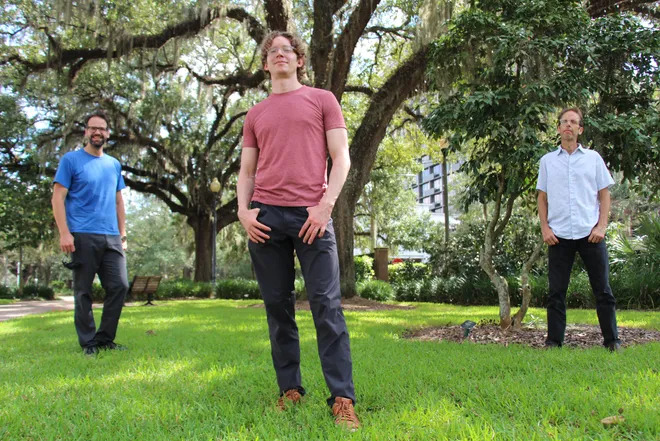
The Tallahassee Symphony Orchestra continued its 2020-2021 season this past weekend with a virtual concert featuring cellist/composer Joshua Roman. TSO Music Director Darko Butorac led the (reduced and socially-distanced) orchestra in a program featuring orchestral, chamber music, and solo cello works.
The Orchestra was in fine form is performance of works by Edvard Grieg, Jules Massenet, and Luigi Boccherini. The distance-caused ensemble and intonation issues present in the first virtual concert were almost completely gone here, and all of the performers seemed more comfortable with the unusual format.
Roman is a very accomplished performer, with effortless technique and a warmly expressive sound. He joined the orchestra for a lively and vivid reading of a concerto by CPE Bach and a solo Prelude by JS Bach, played by Roman with style and sensitivity.
The meat of the program was in two sets of new pieces, beginning with a duo for cello and marimba, Limestone and Felt, by Caroline Shaw. Shaw’s music is both probing and accessible, and Limestone is a good introduction to her work.
This group of new pieces also included Stolen, for solo cello, by Alison Loggins-Hull, and Zapatos de Chincha (violin and cello), by Gabriela Lena Frank. The set made a powerful case for widening the musical canon beyond the standard repertoire of dead white male composers.
The next set of compositions were by Roman himself. Not surprisingly, they featured the cello. Offshoot, in fact, was written for cello quartet with a prominent role for the first cello, played by the composer. This piece, along with two selections of the composer’s pandemic-inspired Musical Journal, reveal a composer with a lyrical gift, and a thorough mastery of his instrument.
The final piece on the program re-united Roman with his former teacher, TSO principal cellist Greg Sauer, for a joyous performance of a concerto for two cellos by Antonio Vivaldi. Butorac was an able accompanist in this rousing concert closer.
The post-pandemic future of concert music is of course, unknown. It does, however, seem clear that the kinds of innovation modeled in the first two virtual concerts of the season are going to be essential in any return to a live musical culture.
Beyond the virtual nature of the concerts, the shifting nature of the instrumentation from piece to piece is an idea worth taking back to the concert hall.
Even more important is the inclusion of new music by composer/performers and by composers of under-represented communities. This will expand not only the experience of the concert-going audience but also the size of that audience, by drawing in younger and more diverse audience members.
By Steve Hicken | Courtesy of the Tallahassee Democrat
